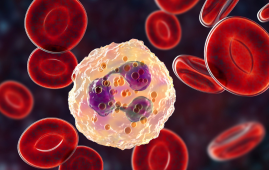

The Mediterranean region is widely recognized for its traditional dietary pattern associated with heart health, longevity, and lower chronic disease risk. However, new research published in the International Journal of Public Health reveals a worrying shift among children and adolescents in these countries: ultra-processed foods (UPFs) are now a daily component of most young people’s diets.
Explore All Pediatrics CME/CE conferences in 2026
Growing Dietary Transition Among Children due to Ultra-Processed Foods
The study analyzed data from 2,011 parents across Italy, Spain, Portugal, Egypt, and Lebanon as part of the DELICIOUS project, which examines diet and lifestyle dynamics in younger populations. The findings showed that about 95% of children and adolescents consumed at least one unhealthy UPF item daily, ranging from sweetened beverages and packaged snacks to fast food and confectionery products. The median intake was approximately 1.8 servings per day.
High UPF consumption was strongly linked to several key factors:
- Older adolescent age
- Childhood obesity
- Increased daily screen time
- Frequent snacking and eating meals outside the home
- Exposure to food advertising
Children spending 2–4 hours on screens daily were more than twice as likely to consume UPFs daily, and those eating meals out at least twice a week were found to be at significantly higher risk of daily Ultra-Processed Foods intake.
Lifestyle Patterns and Family Influence on Ultra-Processed Foods usage
Interestingly, parental influence played a complex role. While higher parental education was associated with higher overall UPF exposure, the age and gender of the responding parent also mattered. Female and older parents reported lower likelihood of daily UPF intake among children, while younger parents were linked to higher consumption patterns.
A healthier lifestyle score (E-KINDEX), based on dietary routine, physical activity, and home environment, was inversely related to UPF intake. This suggests that the consumption of Ultra-Processed Foods is not an isolated dietary behavior but part of a broader lifestyle shaped by convenience, digital exposure, and modern food environments.
Public Health Implications
Although the study’s cross-sectional design limits causation, the findings highlight an urgent need for family-centered and community health strategies. For healthcare professionals, these results underscore the importance of:
- Counseling parents about screen time and food marketing
- Encouraging structured meal routines
- Supporting school and community nutrition programs
Even in regions with strong culinary heritage, modern food habits are reshaping long-standing dietary norms, calling for proactive preventive action.
Source:
more recommended stories
 Rising Chagas Parasite Detected in Borderland Kissing Bugs
Rising Chagas Parasite Detected in Borderland Kissing BugsKey Takeaways (At a Glance) Infection.
 Can Ketogenic Diets Help PCOS? Meta-Analysis Insights
Can Ketogenic Diets Help PCOS? Meta-Analysis InsightsKey Takeaways (Quick Summary) A Clinical.
 Ancient HHV-6 Genomes Confirm Iron Age Viral Integration
Ancient HHV-6 Genomes Confirm Iron Age Viral IntegrationKey Takeaways for HCPs Scientists reconstructed.
 Fat-Regulating Enzyme Offers New Target for Obesity
Fat-Regulating Enzyme Offers New Target for ObesityKey Highlights (Quick Summary) Researchers identified.
 Gestational Diabetes Risk Identified by Blood Metabolites
Gestational Diabetes Risk Identified by Blood MetabolitesKey Takeaways (Quick Summary for Clinicians).
 Pelvic Floor Disorders: Treatable Yet Often Ignored
Pelvic Floor Disorders: Treatable Yet Often IgnoredKey Takeaways (Quick Summary) Pelvic floor.
 Urine-Based microRNA Aging Clock Predicts Biological Age
Urine-Based microRNA Aging Clock Predicts Biological AgeKey Takeaways (Quick Summary) Researchers developed.
 Circadian Control of Neutrophils in Myocardial Infarction
Circadian Control of Neutrophils in Myocardial InfarctionKey Takeaways for HCPs Neutrophil activity.
 E-Cigarette Use and Heart Attack Risk in Former Smokers
E-Cigarette Use and Heart Attack Risk in Former SmokersKey Takeaways for Clinicians and Nurses.
 Ultramarathon Physiology: What HCPs Should Know?
Ultramarathon Physiology: What HCPs Should Know?Ultramarathon Metabolism: What Happens to the.

Leave a Comment